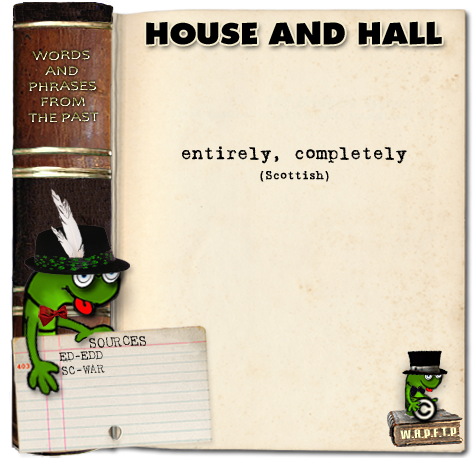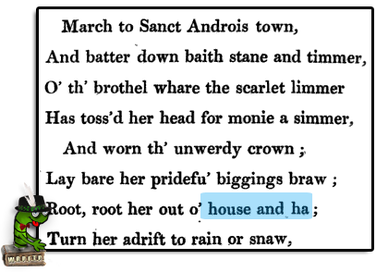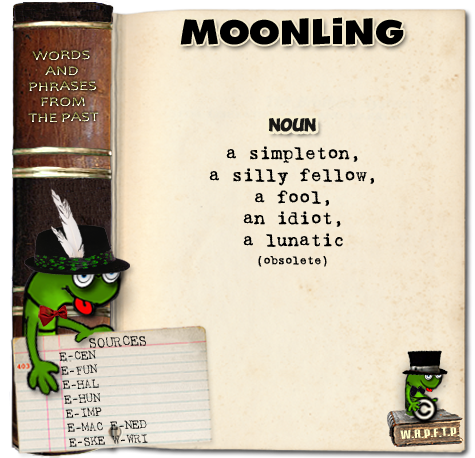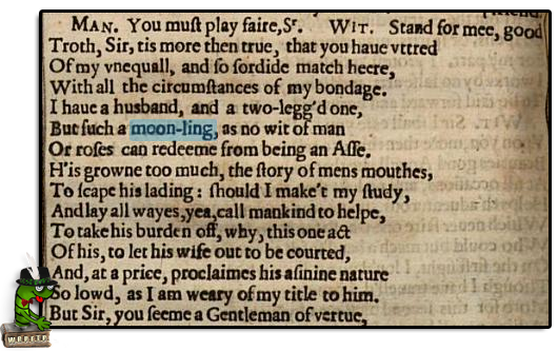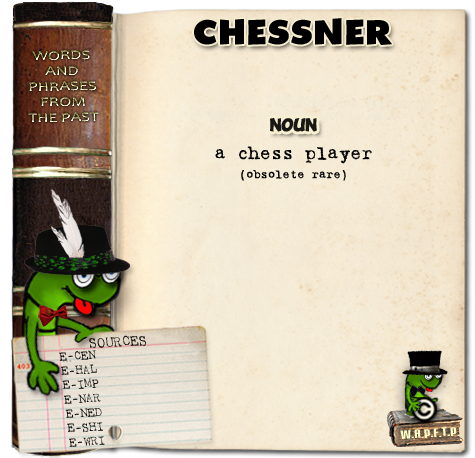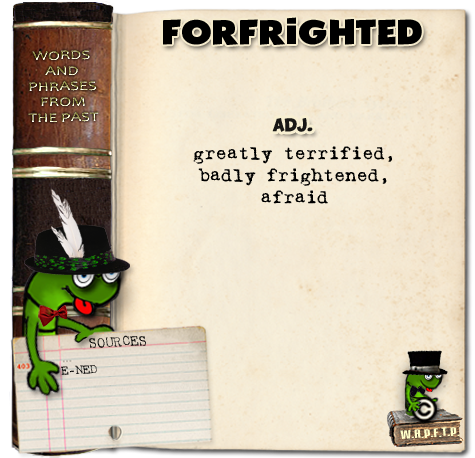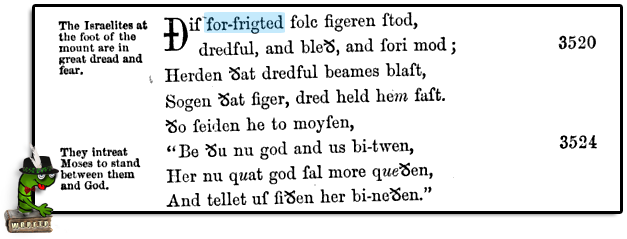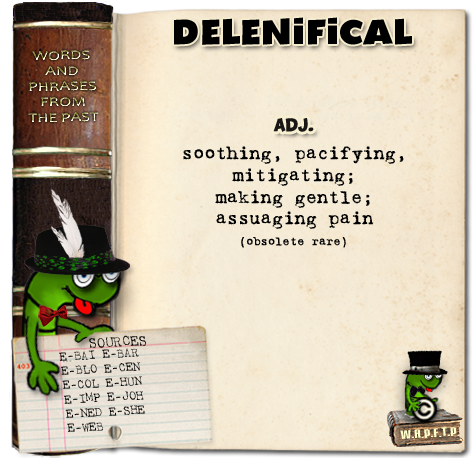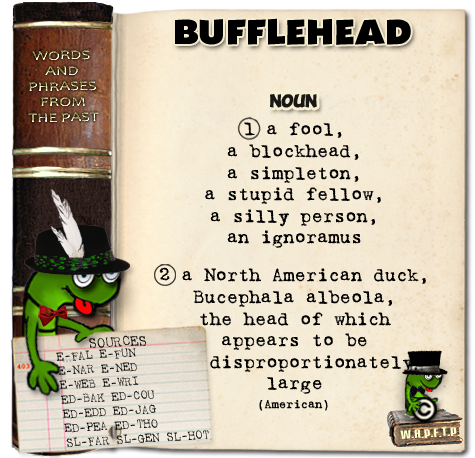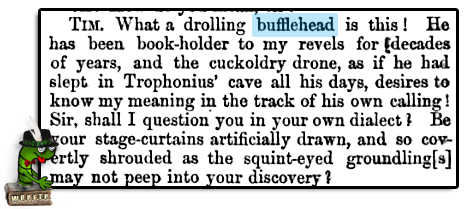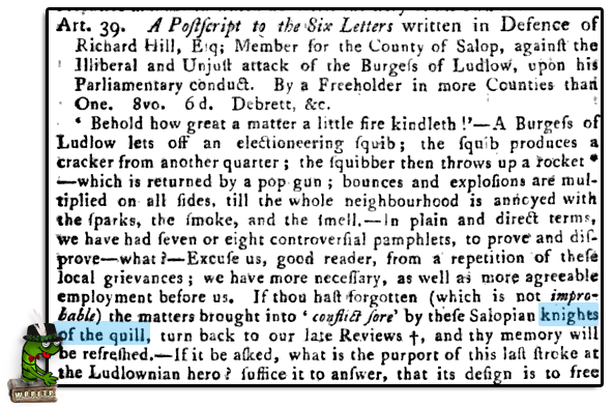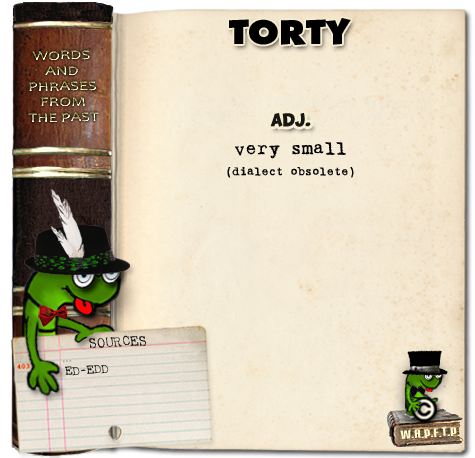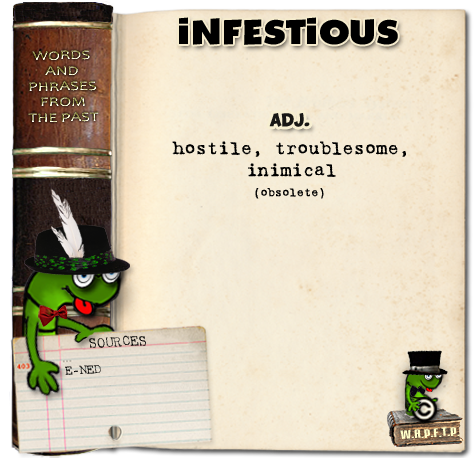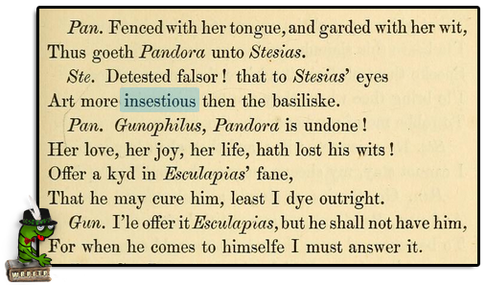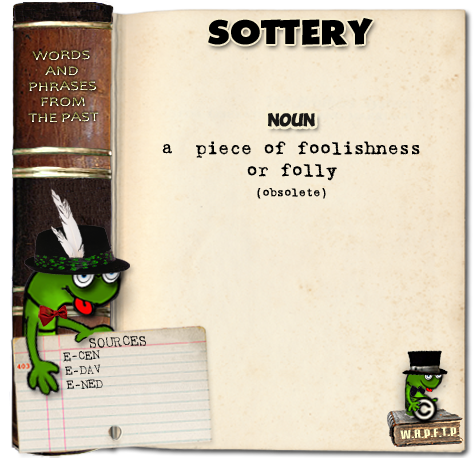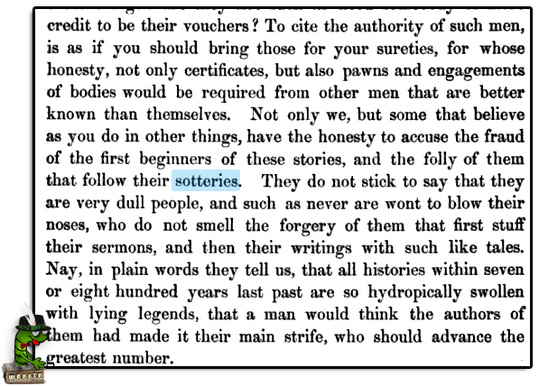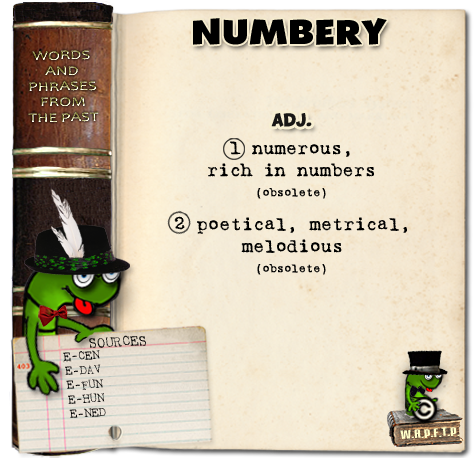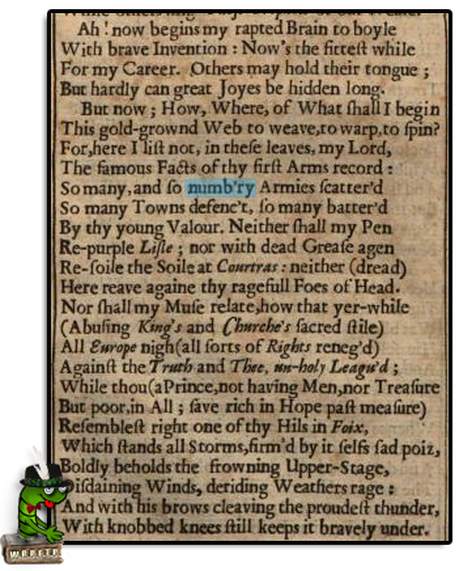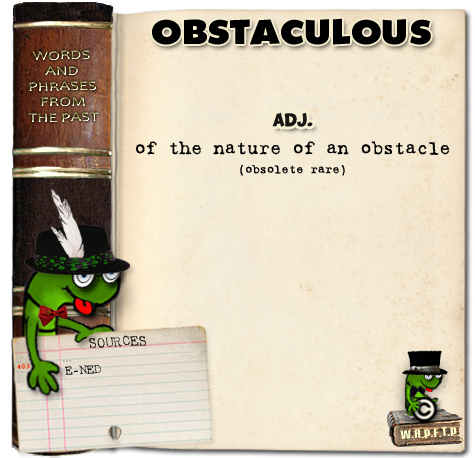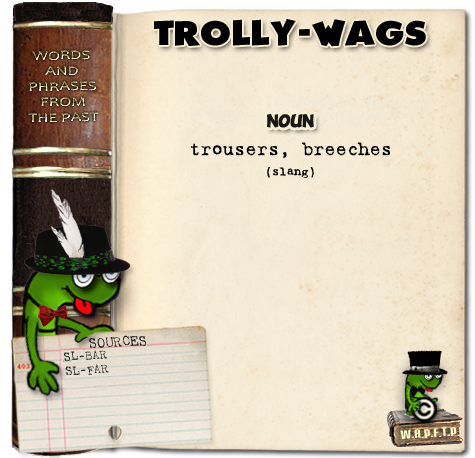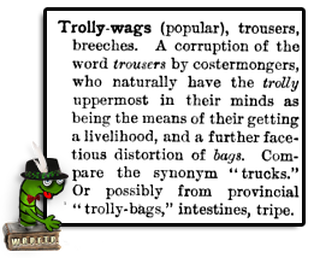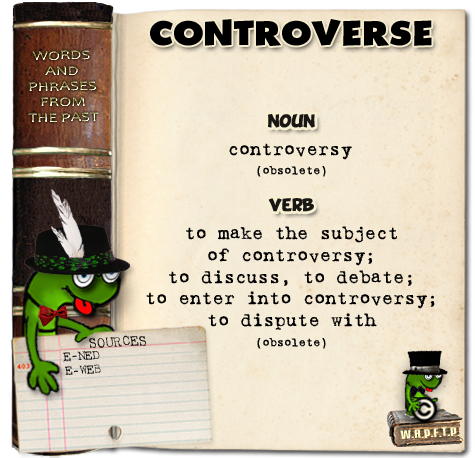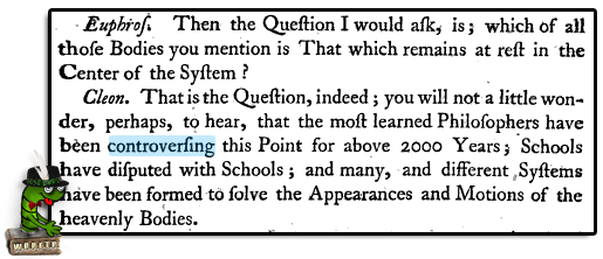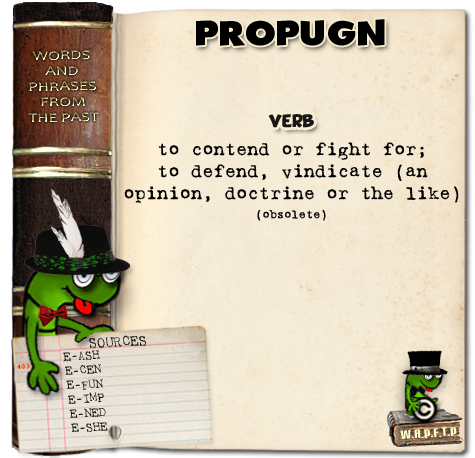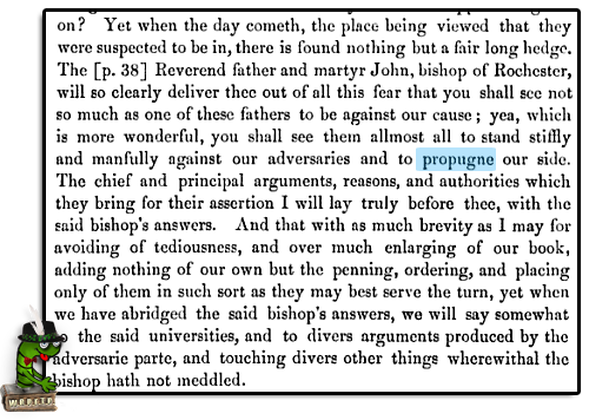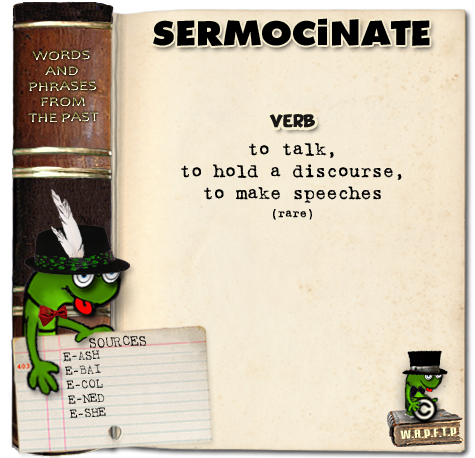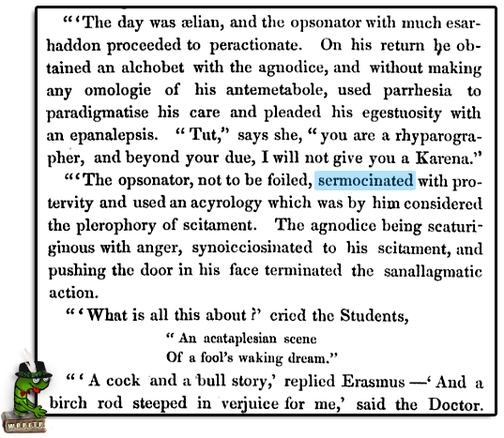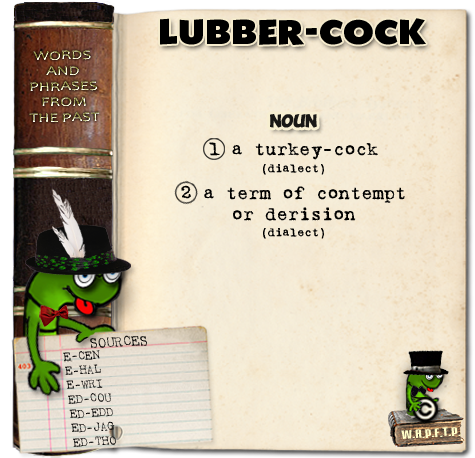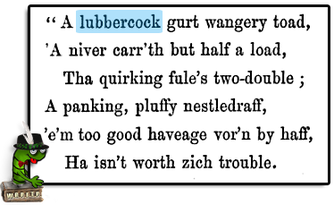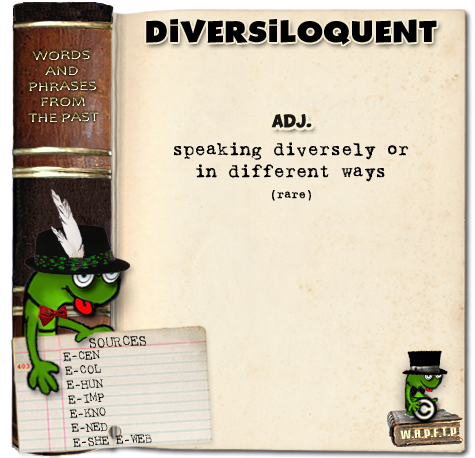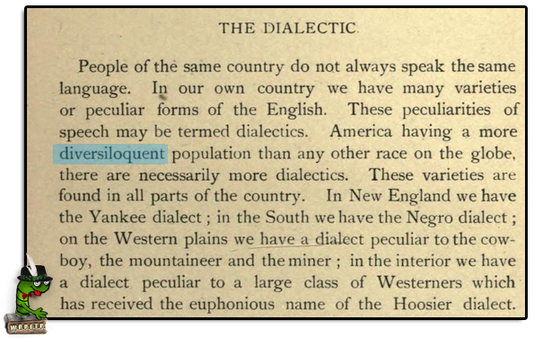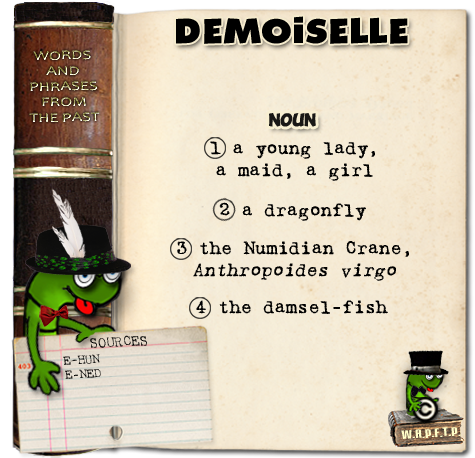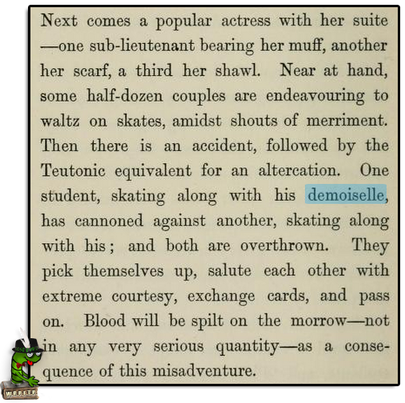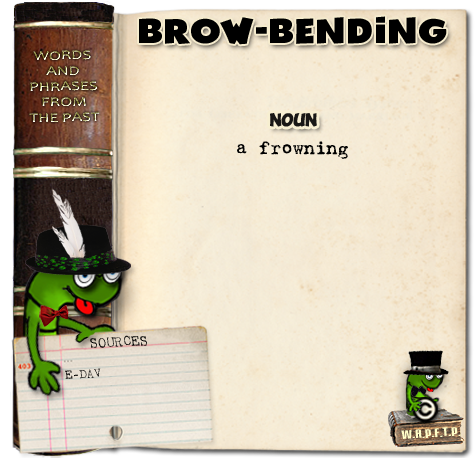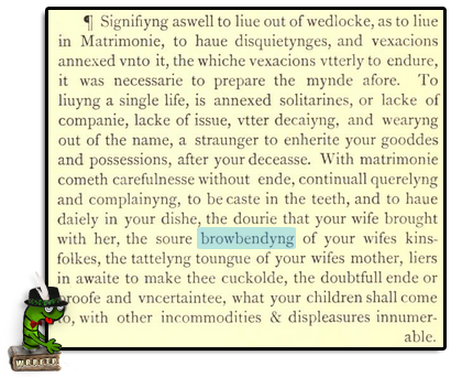|
From: Papistry Storm'd:
Or, The Dingin' Down o' the Cathedral Ane Poem, in Sax Sangs By William Tennant 1827 Sang First P. 27
0 Comments
from moon (n.) + -ling 1616 - The Divell is an Asse, Ben Jonson; see Example below From: The Diuell is an Asse
A Comedie Acted in the Yeare, 1616 By Ben Jonson Printed 1631 Act I. Scene VI. P. 108 from chess; ? on analogy of partner 1624 - A Game at Chesse, a Play, Thomas Middleton; see Example below From:A Glossary, or Collection of Words, Phrases, Names, and Illusions to Customs, Proverbs, Etc.,
Robert Nares, 1822 c 1250 - Genesis. The Story of Genesis and Exodus, an early English Song;
see below From: The Story of Genesis and Exodus: An Early English Song, about A.D. 1250 Edited by the Rev. Richard Morris, 1865 P. 100 from Latin dēlēnificus soothing, from dēlēnīre to soothe down + -ficus making 1656 - Glossographia, Thomas Blount;
"Delenifical, that mitigates or makes gentle" from buffle (a fool) + head 1659 - Lady Alimony, or The Alimony Lady; see Example below From: A Select Collection of Old English Plays
Originally Published by Robert Dodsley in the Year 1744 Fourth Edition Edited by W. Carew Hazlitt Volume the Fourteenth. 1875 Lady Alimony Act I. Scene II P. 278 late 17th century (as per A Dictionary of Slang and Unconventional English, Eric Partridge) From: The Monthly Review Or Literary Journal
From January to June 1783 Volume LXVIII Miscellaneous P. 452 irregular from Latin infestus (infest (adj.) hostile[obs.]) or infest (vb.) to attack, assil or trouble in a persistent manner, after adjs. in -ious 1597 - The Woman in the Moone, John Lyly; see Example below From: The Dramatic Works of John Lilly
Edited by F.W. Fairholt Volume II. 1858 The Woman in the Moone Act IV. Scene I P. 191 Note: in the example shown, 'insestious' should be 'infestious' from older (now dial.) French sotterie, soterie, from sot sot (n.) a foolish or stupid person; hence also Middle Dutch sotterie (usually sotternie) 1598 - A Worlde of Wordes, or most Copious and Exact Dictionarie in Italian and English, John Florio; "Mattarie, fooleries, madde tricks, sotteries" From: The Works of Symon Patrick
Edited by the Rev. Alexander Taylor Volume IV. 1858 The Parable of the Pilgrim (1663) Chapter XXXV. P. 330 from number (n.) + -y 1591 - Du Bartas his Divine Weekes and Workes, Joshua Sylvester; see Example below From: Du Bartas His Diuine Weekes and Workes
Translated by Joshua Sylvester Printed 1641 The Battail of Yury P. 551 from Latin obstāculum obstacle + -ous a 1643 - Judgement and Mercy (Sermons), Josias Shute;
see below from E-NED ? possible rhyming slang from 'bags' (n.) trousers; also see below From: A Dictionary of Slang, Jargon & Cant By Albert Barrere, 1890 late 19th century - as per A Dictionary of Slang and Unconventional English,
Eric Partridge from French controverse, from Latin contrōversia controversy 15?? - The Contrauerce bytwene a Louer and a Jaye, Thomas Feylde; see below from E-NED From: The Young Gentleman and Lady's Philosophy
By Benjamin Martin Volume I. 1759 Dialogue II. Of the Universe, and the Several Systems of the World P. 9 c 1555 - A Treatise on the Pretended Divorce between Henry VIII and Catharine of Aragon, Nicholas Harpsfield; see Example below From: A Treatise on the Pretended Divorce between Henry VIII and Catharine of Aragon
By Nicholas Harpsfield Edited by Nicholas Pocock Printed for the Camden Society, 1878 P. 48 from Latin sermōcinat-, pa. ppl. stem of sermōcinārī, from sermo talk, discourse, speech 1623 - The English Dictionarie, or an Interpreter of hard English Words, Henry Cockeram; "Sermocinate, to talke, to commune" From: Mother Red Cap
Printed 1843 Copy of a Letter from Henry Foxall, Gentleman, to Charles Firebrace, Esquire From my Chambers in Whitehall, this 13th September, 1666 P. 21 From: Jim and Nell:
A Dramatic Poem in the Dialect of North Devon By William Frederick Rock, 1867 P. 25 from diversi- + Latin loquentem speaking 1656 - Glossographia, Thomas Blount; "Diversiloquent, that varieth or speaks diversly" From: Elements and Science of English Versification
By William C. Jones, 1897 Part Third Of the Various kinds of Poetry P. 303 modern French, from earlier damoiselle, form of damsel 1520 - The Cronicles of England, William Caxton; see below from E-NED From: My Ducats and My Daughter
by Peter Hay Hunter, and Walter Whyte Volume I. 1884 Chapter III. The Pursuit of Knowledge P. 68 ? 1542 - Apophthegmes, that is to saie, Prompte Saiynges. First gathered by Erasmus, Nicolas Udall; see Example below From: The Apophthegmes of Erasmus
Translated into English by Nicolas Udall Reprinted from the Edition of 1564 Printed 1877 The Saiynges of Socrates P. 18 |
Archives
September 2021
|
